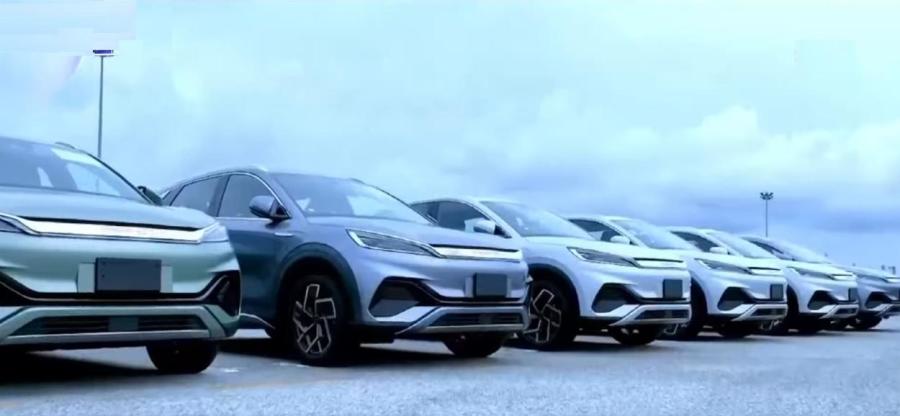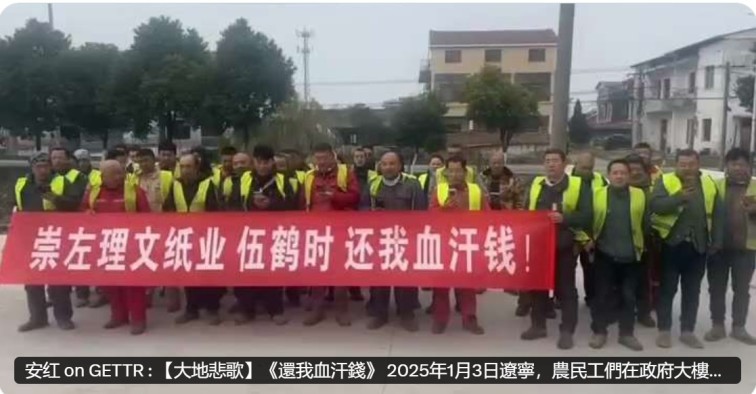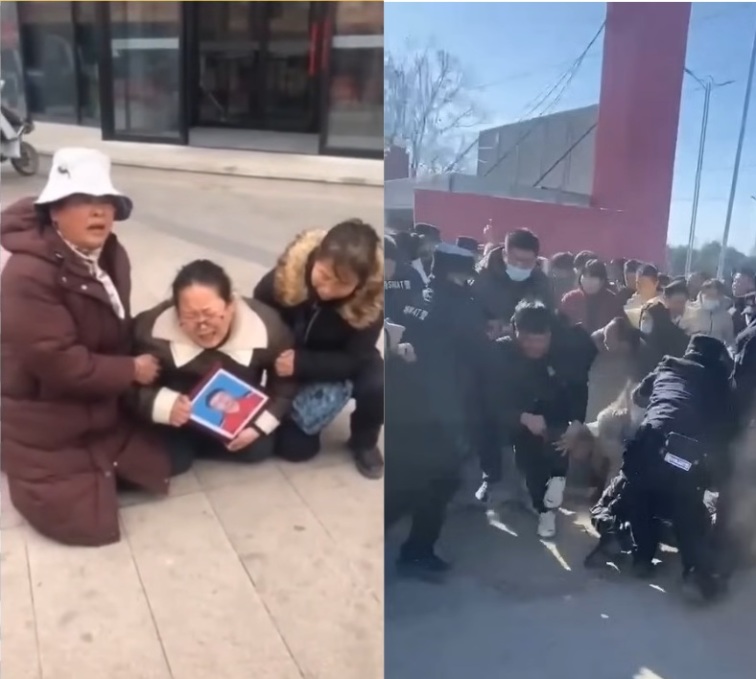Another Chinese electric vehicle (EV) manufacturer appears to be in financial trouble as Nezha Motors discreetly closes its stores nationwide. Pictured: A Chinese-made electric vehicle. (Video screenshot)
[People News] Another Chinese EV company is suspected of facing operational difficulties. Nezha Motors has quietly closed multiple stores across the country, and its founder has been subject to travel restrictions due to a labor dispute. While China’s EV industry has relied on substantial government subsidies to expand both domestically and internationally, rising tariffs in Europe and the U.S., combined with internal price wars, economic decline, and immature technology, have led industry experts to predict a "crash year" for Chinese EVs in 2025. This could result in widespread bankruptcies and unemployment, triggering broader societal repercussions as another signature project of Xi Jinping falters.
According to Radio Free Asia, Nezha Motors' founder, Fang Yunzhou, who serves as the legal representative of Beijing Zhehe New Energy Technology Co., Ltd., was issued a consumption restriction order on Tuesday (Jan. 7) by the courts. This was due to the company’s failure to fulfill its obligations in a labor dispute within the legally required timeframe.
Nezha Motors has been mired in negative publicity recently, with multiple customers reporting that vehicle repairs were impossible due to parts shortages. Car owners in cities such as Suzhou and Chongqing have stated that they received notices about local store closures.
Domestic media confirmed the closures with the company’s customer service, which stated that authorized service centers would continue to provide repairs and maintenance. Nezha Motors plans to gradually shut down its self-operated stores and shift to a dealership model to reduce operational costs.
In November of last year, Nezha Motors saw a sharp decline in sales and faced reports of layoffs and production halts. Although the company announced it resumed operations in early January and set a production goal of 4,000 vehicles for January and February, its ability to survive through 2025 remains uncertain.
Nezha Motors is not an isolated case.
Last month, Xia Yiping, CEO of Chinese EV startup Jiyue, abruptly announced the company's closure, shocking the public. The collapse angered employees, dealers, and customers, with blame directed at Jiyue’s major shareholders, Baidu and Geely.
German legal scholar and former European Chinese Daily editor Qian Yuejun commented that China's EV industry has experienced rapid growth under state subsidies but is now facing challenges from increased tariffs abroad and a weakening domestic economy. He predicts a wave of EV company bankruptcies, accompanied by massive layoffs that could lead to social unrest.
Qian stated, "China's EV sector pursued a 'Great Leap Forward,' producing an oversupply of vehicles and flooding overseas markets with cheap exports. In response, Europe and the U.S. have raised tariffs to counter this dumping. Meanwhile, China’s overall economic slowdown and reduced government support for EVs have led the industry from overheating to decline, resulting in a terrifying wave of company closures. These bankruptcies not only devastate investors but also trigger massive unemployment, exacerbating social tensions and conflicts."
A Japanese manufacturing expert on X, known as "Dongbei Yuchu," argued that China’s EV boom is the result of policy-driven growth rather than technological maturity. He believes this approach is unsustainable.
"The explosive growth of China’s EV sector was fueled by government subsidies. However, such large-scale support can no longer continue due to trade wars and external pressures. While China can subsidize its EV companies, other countries can also adopt policies to support their own industries while suppressing Chinese firms. China's EVs are not genuinely innovative: battery technology lacks maturity, and autonomous driving is not truly advanced. The main difference lies in policy. China essentially uses human lives to refine algorithms, treating people as expendable. EV accidents are likely to surge, raising doubts about whether Chinese consumers will continue purchasing these vehicles," he said.
"Dongbei Yuchu" also predicted that Xi Jinping's "new productivity" showcase project—China's EV industry—would follow the pattern of other failed initiatives.
"Whatever Xi Jinping touches, he ruins. The conclusion is clear: 2025 will be a 'crash year' for EVs. Many companies will die off, leaving only a few prominent players like BYD and Huawei. However, these survivors will rely on state subsidies to maintain appearances," he added.
Earlier reports from the South China Morning Post indicated that China’s EV industry has an annual production capacity of 20.2 million vehicles, but last year’s sales totaled only about 10.68 million. Only three companies, including BYD, were profitable.











News magazine bootstrap themes!
I like this themes, fast loading and look profesional
Thank you Carlos!
You're welcome!
Please support me with give positive rating!
Yes Sure!